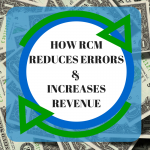
Lower Healthcare Costs by Paying Patients to Shop
Paying patients to shift to lower-price providers could be a successful option for helping employers and insurers lower healthcare costs, a new study in Health Affairs suggests.
Home » Uncategorized » Page 21

Paying patients to shift to lower-price providers could be a successful option for helping employers and insurers lower healthcare costs, a new study in Health Affairs suggests.

Almost half — 46 percent — of adults aren’t familiar with “Medicare for All” proposals, according to a survey from NORC at the University of Chicago.

More than 71 percent of surveyed employers are integrating or considering bundling their medical, pharmacy, dental, vision and disability benefits under a single employee package, according to a new study released by Anthem.

CMS updated its Opioid Prescribing Mapping Tool to give users a more in-depth look at opioid prescribing rates across the U.S., the agency announced Feb. 22.

The American Hospital Association has opened applications for its second annual AHA Innovation Challenge.

The health IT workforce appears to be growing in hospitals, according to the Healthcare Information and Management Systems Society’s 2019 U.S. Leadership and Workforce Survey.

Hospitals and health systems recieved an influx of fraudulent emails last year , a persistent problem that has cost healthcare organizations $12.5 billion since the end of 2013, a Proofpoint study found.

Payer denials is the top revenue cycle challenge facing hospitals today, according to a study conducted by Besler and HIMSS Media.

Insurance prior authorizations for certain drugs, tests and treatments continue to burden medical practices and could negatively affect patient outcomes, according to new survey results from the American Medical Association.

Among patients ages 65 and older, the rate of opioid-related hospitalizations jumped 34 percent between 2010 and 2015, according to statistical brief from the Agency for Healthcare Research and Quality.